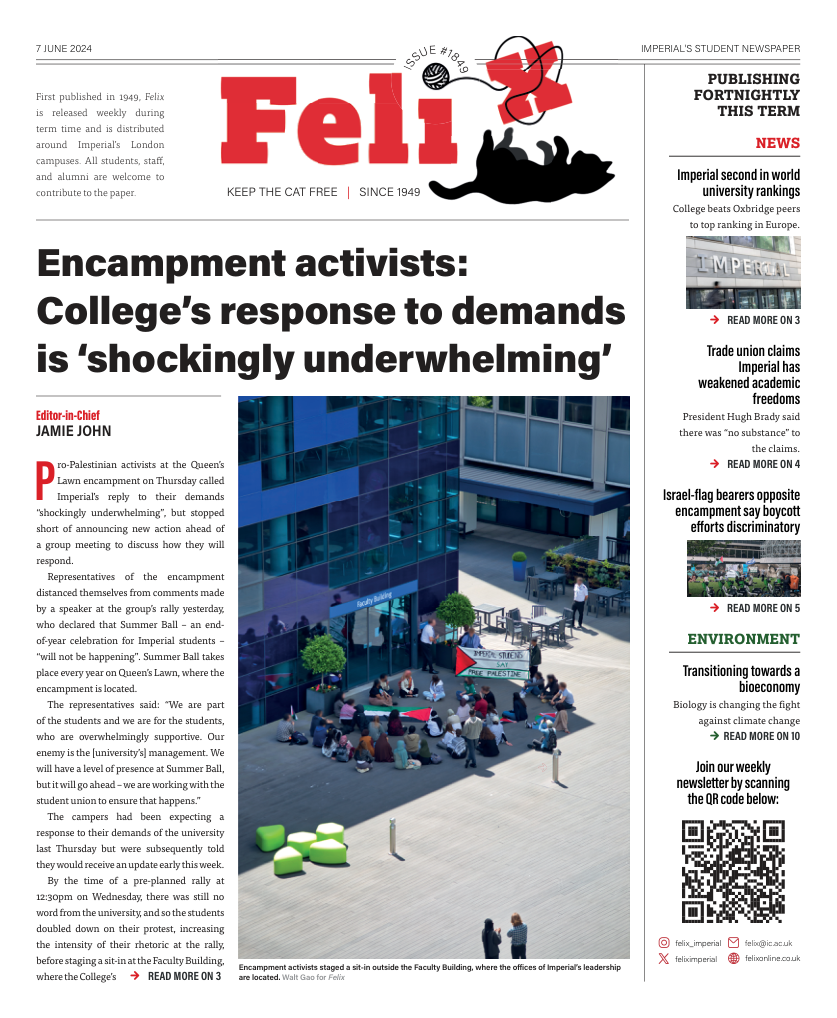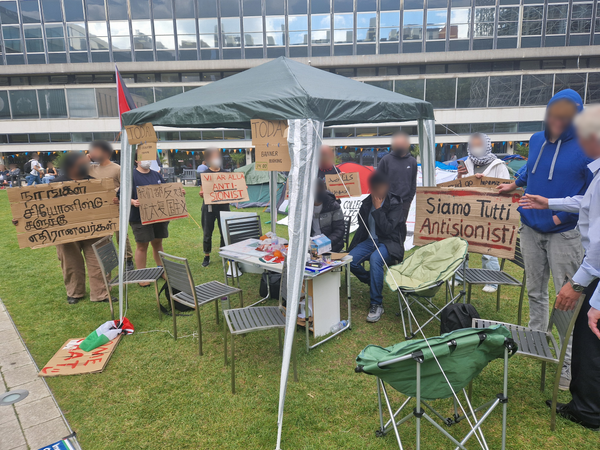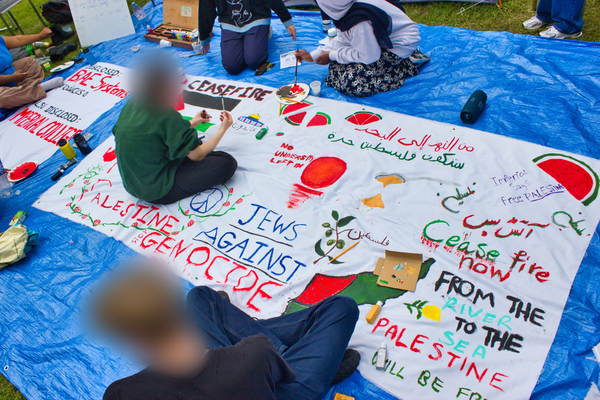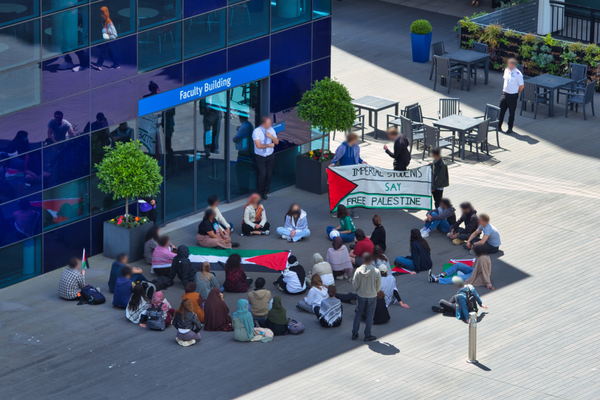Encampment activists: College response to demands is ‘shockingly underwhelming’
Encampment reps said Summer Ball would be happening, distancing themselves from comments made at an earlier rally on Wednesday.
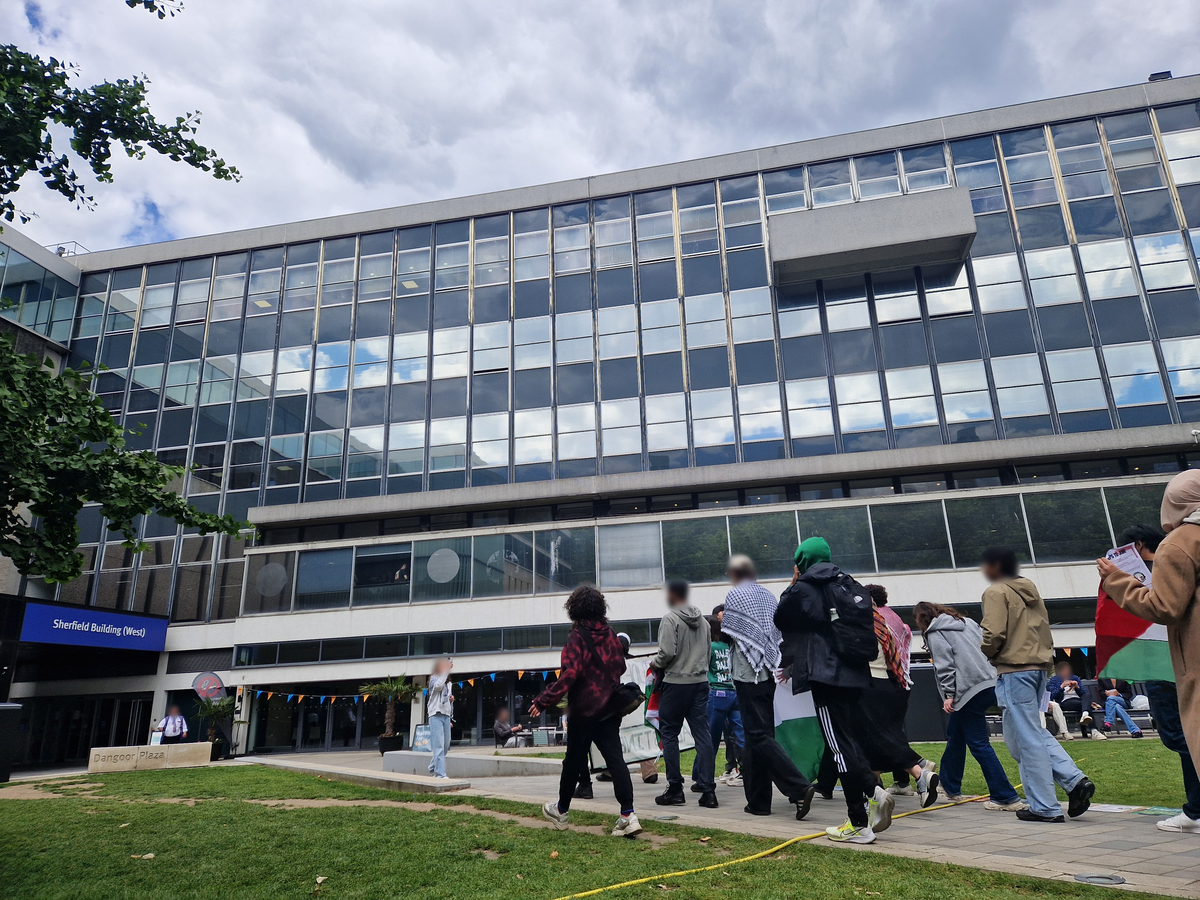
Pro-Palestinian activists at the Queen’s Lawn encampment on Thursday called Imperial’s reply to their demands “shockingly underwhelming”, but stopped short of announcing new action ahead of a group meeting to discuss how they will respond.
Representatives of the encampment distanced themselves from comments made by a speaker at the group’s rally yesterday, who declared that Summer Ball – an end-of-year celebration for Imperial students – “will not be happening”. Summer Ball takes place every year on Queen’s Lawn, where the encampment is located.
The representatives said: “We are part of the students and we are for the students, who are overwhelmingly supportive. Our enemy is the [university’s] management. We will have a level of presence at Summer Ball, but it will go ahead – we are working with the student union to ensure that happens.”
The campers had been expecting a response to their demands of the university last Thursday but were subsequently told they would receive an update early this week.
By the time of a pre-planned rally at 12:30pm on Wednesday, there was still no word from the university, so the students ramped up their rhetoric and staged a sit-in at the Faculty Building, where the College’s most senior staff work.
For the first time, protesters named President Hugh Brady and Provost Ian Walmsley in their chants, shouting “Hugh Brady, shame on you” and “Ian Walmsley, shame on you”.
One speaker at the rally, addressing Bradey and Walmsley, asked: “When you go home to your big mansion and your six-figure salary, do you hear the screams of children [in Gaza] at night?”
At 5:30pm, an hour after the encampment’s final event of the day, Imperial sent its response. University Secretary Richard Martin and Vice-Provost Peter Haynes said that they recognised “the profound human suffering” caused by the war in Gaza.
The university rejected activists’ calls for Imperial to condemn Israel’s actions in the Gaza Strip, saying it would undermine the College’s ability to provide “an open forum for debate an exploration of all topics.”
Protestors have sent the university the names of companies they want it to divest from and cut research ties with – because of alleged complicity in ‘crimes against Palestinians’.
Imperial responded to the divestment demand saying that all its investments are made in accordance with its Socially Responsible Investment Policy, which makes it a “signatory to the UN Principles of Responsible Investment”. It did not comment further.
The university said its research relationships are governed by its Relationships Policy, legislative requirements, and the provisions of the National Security & Investment Act 2021.
The Relationships Policy compels ‘individual members of the College community’ to abide by its guidelines ‘when forming relationships with third parties,’ and charges them with ‘escalating matters where appropriate’.
An encampment representative said: “Our position [is that Imperial] has moral responsibilities beyond the minimum required by law.
“They have an existing relationships policy which mentions the role of individual academics to assess the ethical and moral implications of their work. It’s our belief that the College should do that institutionally as well.
“[Some of] the companies that we have identified in our report are companies that are specifically listed by the United Nations High Commission as operating illegally in the occupied territories [of Palestine].
Addressing Imperial’s investment policy, the representative said: “Any ‘socially responsible investment’ policy is not worth its name if it enables investment in companies complicit in what these companies are doing.”
The activists have also called for Imperial to ‘support Palestinian students through scholarships, establishing links with Palestinian universities and supporting the rebuilding of the Gazan higher education system.’
In its response to the activists’ demands, Imperial highlighted its work with the Campaign for At Risk Academics (CARA). In May, the College announced it would fund and host eight CARA fellows – at risk in their home countries – to complete two-year research placements at the College.
The encampment representatives said that the CARA programme did not meet their specifications. “It’s our opinion that Imperial’s responsibility – given its relationships with these companies who are complicit in what’s going on in Gaza right now – goes beyond temporarily exporting Palestinian academics from Gaza.
“The minimum we would ask for is that they set money aside to be ready to help when the conflict ends to help rebuild the indigenous Palestinian academic environment.
“Imperial’s response is absolving them of any moral duty by simply pointing to laws or acts that they have in place. They are trying to shove it under a rug rather than taking a principled approach as we’ve been trying to get them to.”
On 7th October, Hamas launched attacks on Israel, killing around 1,200 people and taking a further 252 hostages, according to Israeli authorities.
Over 36,000 people have been killed in Israel’s retaliatory attacks in Gaza since then, according to Palestinian officials from Gaza’s Hamas-run health ministry.
The university did not respond to a request for comment.

